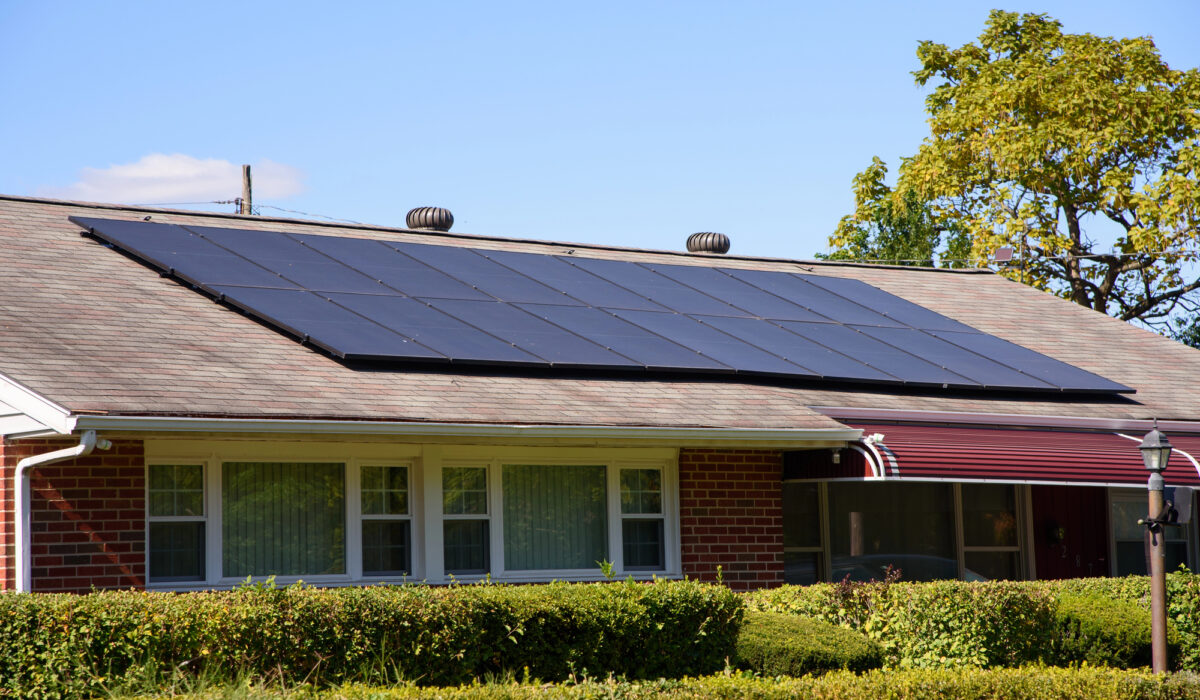- 0 Comment
Do Solar Panels Work in Cloudy Climates?
If you live in Ohio or anywhere with overcast skies and long winters, it’s natural to wonder: Do solar panels work in cloudy climates? The answer is yes — and in many cases, solar performs better than most people expect in colder, less sunny regions.
In this post, we’ll explain how solar panels generate power, how they handle clouds and snow, and why solar is still a smart investment even if your state isn’t famous for sunshine.
How Solar Panels Really Work (Not What You Think)
Solar panels don’t rely on heat — they rely on light. Specifically, they capture photons from sunlight and convert them into electricity using a process called the photovoltaic effect.
That means even on cold or cloudy days, as long as there’s daylight, your system is still producing energy. In fact, solar panels are often more efficient in cooler temperatures, since heat can reduce their performance.
Can Solar Still Produce Power on Cloudy Days?
Absolutely. While solar panels produce less electricity on overcast days, they still generate power using diffused lightthat passes through clouds. On average, production may drop to 10% to 30% of peak output, but your system keeps working.
Think of it like this: if you can still get a sunburn through clouds, your panels can still collect light too.
Why Cold Climates Can Be Good for Solar
It may seem counterintuitive, but cold temperatures actually help solar panels operate more efficiently. Most solar panels are tested for optimal performance at 77°F (25°C), and high temperatures can decrease output.
That’s why many colder countries and northern U.S. states are leading the way in solar adoption — performance remains steady even during chilly months.
What About Snow?
Yes, snow can temporarily cover your panels and reduce production. But panels are typically installed at an angle, which helps snow slide off naturally. Their dark surface also absorbs heat from sunlight, helping snow melt faster than on other parts of your roof.
Surprisingly, snow can actually reflect light and boost solar production once the panels are clear — similar to how skiers get sunburned on the slopes.
Net Metering Helps You Balance the Seasons
If your utility company offers net metering, you can earn credits for any excess electricity you produce during sunny months. Then, in the winter or on cloudy days, you can use those credits to offset your energy use.
This means your solar energy system works year-round, even when the skies are gray.
Should You Go Solar in a Cloudy State?
Definitely. While total solar output may be slightly lower in cloudy or snowy regions, the long-term savings and energy independence still make solar worthwhile. High-efficiency panels, local incentives, and the 30% federal tax credit all work in your favor.
And with energy prices rising, going solar gives you control over your utility costs for the next 25+ years.
Final Thoughts
So, do solar panels work in cloudy climates? Yes — and often better than expected. Even in Ohio, solar power can reduce your bills, increase your home’s value, and protect you from future energy price hikes.
If you’re ready to take control of your energy and start saving, reach out to Phoenix Roofing and Solar today. We’ll design a system tailored to your home, answer all your questions, and help you own your power — even when the sun isn’t shining.
Contact us now for a free solar consultation.

